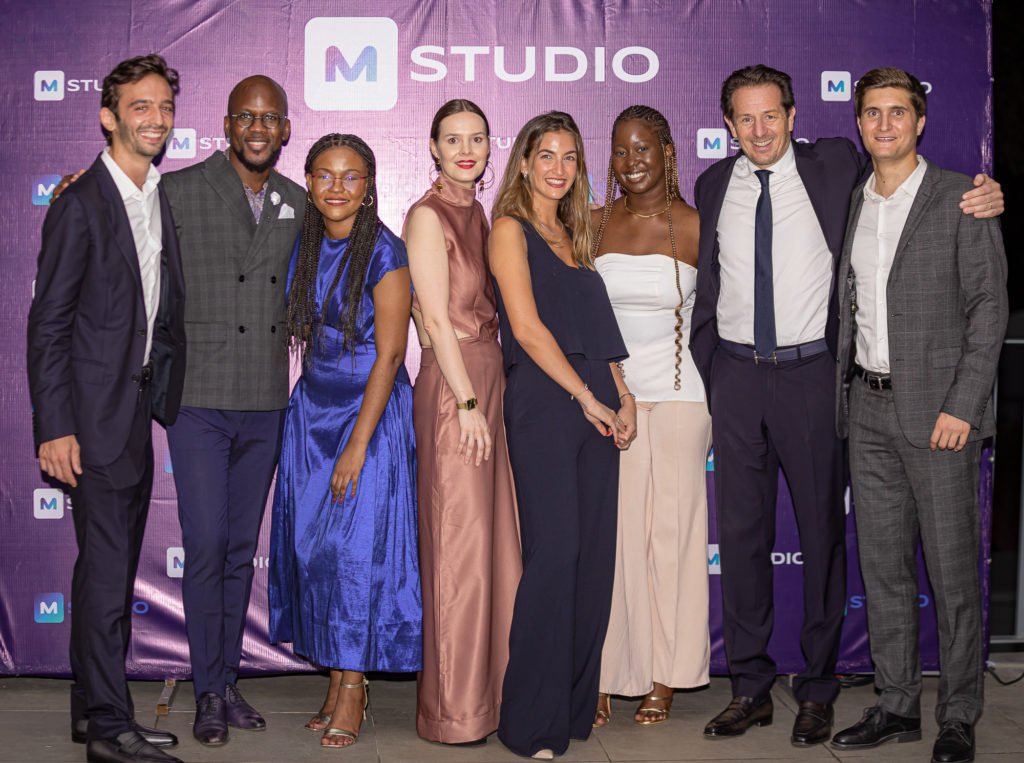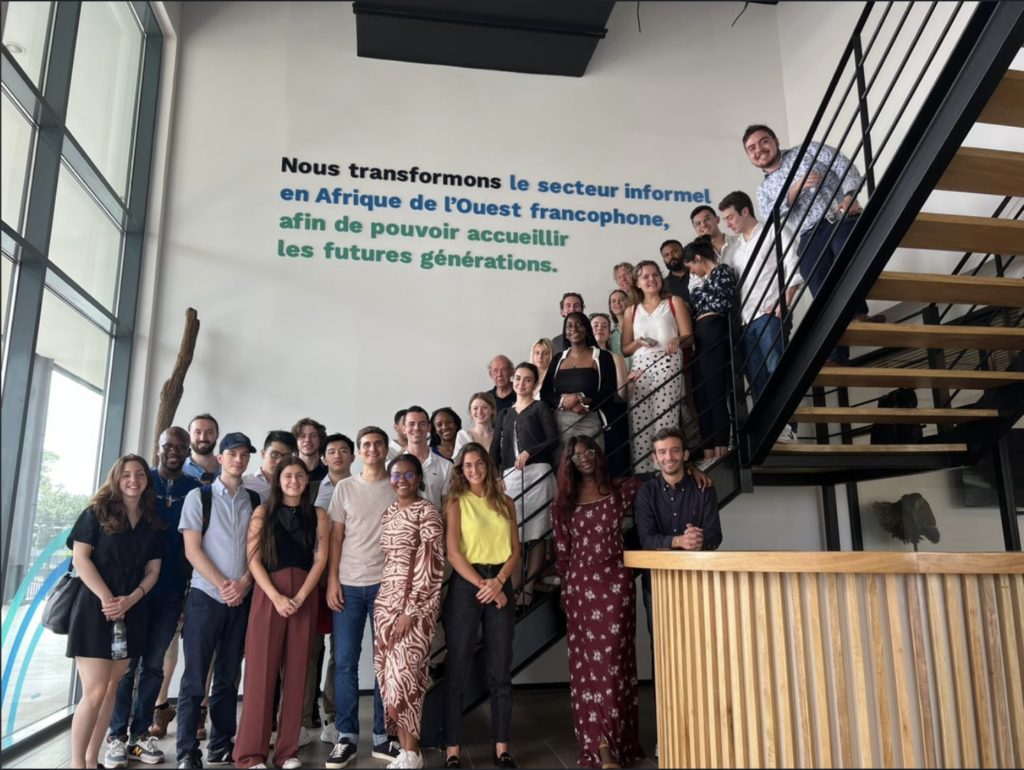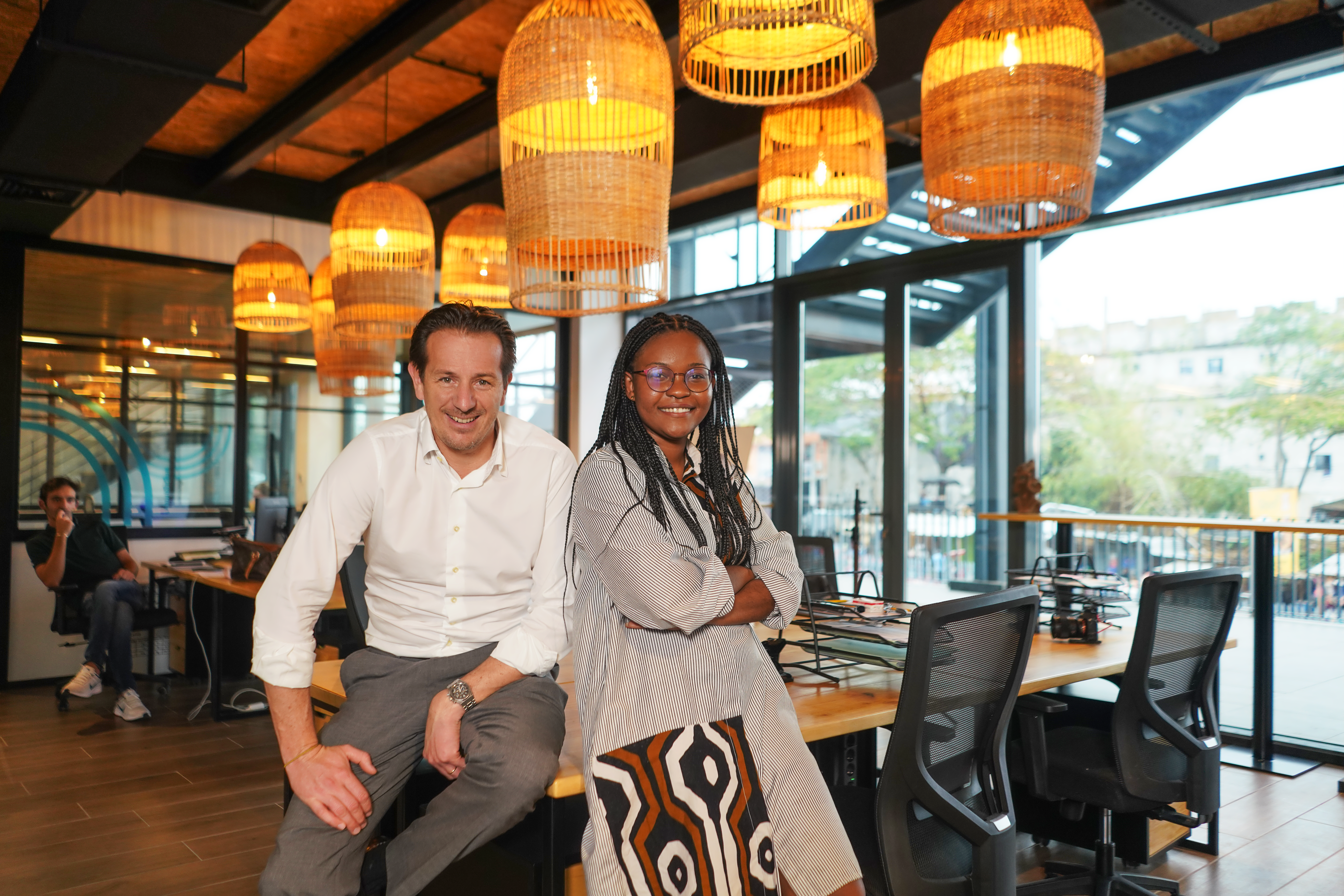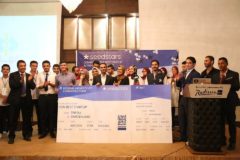On March 7, hundreds of people gathered at Ivoire Trade Center (ITC), a landmarking office and recreational campus located in Cocody, Abidjan, for the launch of Mstudio, an Ivorian firm with the ambition to build multiple sustainable companies across the francophone region. The studio occupies two floors—aesthetically designed for entrepreneurs and visitors to feel at home—in the ITC campus, which also hosts the PWC’s Ivorian office and other top companies.
The studio underscores the francophone region’s effort to close the innovation and funding gap between them and their English-speaking counterparts. The strategy of using venture building to multiply ecosystem growth is becoming a noticeable trend in the francophone region. From Dakar, the culture-rich coastal capital city of Senegal, to Kinshasa in Congo, and now Abidjan, the bubbly commercial city of Cote d’Ivoire, operators are picking up pace by building tech and tech-enabled startups that will make them a choice market for startup funding.
“We [francophone countries] are way behind the likes of Nigeria, Kenya and South Africa and we need to collectively build sustainable ventures that can reduce the gap and eventually close it,” Cedric Mangaud, co-founder and CEO of Mstudio, told TechCabal over a call.
This is the main ideology that drove Mangaud and his co-founder Leslie Ossete to conceptualise Mstudio in 2022 and then launch it officially this March. The studio, according to the founders, is aimed at creating multiple successful startups. Mstudio’s strategy is to collate business models that work across the continent, especially in the English-speaking markets and the big four—Nigeria, Kenya, Egypt, and South Africa—and incorporate those with the highest chance of scaling in the francophone markets, starting with Ivory Coast.
“In order to increase the chances of success for our ventures, it will not be a matter of reinventing the wheel but rather of perfecting the execution of a proven business model,” Mangaud said while speaking to why the studio chose to go with already proven business models. “The good thing about being behind is that there are so many case studies to learn from,” he told TechCabal.

Mstudio wants to digitise the informal sector
The primary role of a venture studio is to create startups, typically by providing the initial team, strategic direction and capital. However, venture studios can decide to either build niche startups or take a generalist approach, building all kinds. For instance, Haske Venture, a Senegalese venture studio, seems to be generalist as it is building startups across different verticals, including SMEs.
“Small businesses are the backbone of many economies in the world, especially Africa, and they also need help to build sustainable businesses,” Abdourahmane Diop, co-founder and CEO of Haske Ventures, once told me during a visit to their studio.
But for Mstudio, the overarching goal is to transform the informal sector of Francophone Africa. This means that they are invested in ideas that only target the informal sector, and their investment criteria are based on four axes: the existence of at least two co-founders; a business model already proven in the English-speaking African market; a mobile-based solution targeting the informal market; and a first launch in Abidjan to address French-speaking Africa. Mstudio will actively nurture startups as their third co-founders from conception until they are ready to raise a seed round.
Like every venture studio, Mstudio has an entrepreneur residency program where it will either vet ideas and then hire entrepreneurs to build them out, or hire entrepreneurs with their own ideas. Mstudio provides all the initial end-to-end resources needed to build until the point of raising seed funding.

Mstudio invests 15.000 € (~$16.3k) in cash in each startup during its Entrepreneur-in-Residence program. This amount allows the startup to validate its idea and build a prototype. At the end of the program, founders will pitch to an Investment Committee. Upon scaling through the IC stage, the startup officially enters the studio for a 12-month period to launch its MVP and achieve product-market fit. The startup receives a cash investment of 250.000 € (~$270k), a pre-seed equity funding led by a partner VC firm and then sweat equity investment valued at 500.000 € ($545k) from Mstudio. At the end of the 12-month period, the startup does a seed round, which is open to more international investors.
“Though this is an equity-based partnership, we make sure that the founders keep more equity to equip them with a better chance of raising more external institutional funding when they are ready,” explained Ossete, an ex-founder and operator who led unicorn Wave mobile money’s expansion into more than 10 African countries.
According to Ossete, Mstudio recruits three types of co-founders: tech entrepreneurs who have built a business before, key talent of high-growth startups in Africa, and good students who have a great capacity of execution. “We also position ourselves as a soft landing for the diaspora who wish to return to Africa to contribute to the growth of the continent and move the lines,” she said.
The studio has already launched three startups inspired by business models with proven success in English-speaking Africa: Djoli, an application that allows informal restaurants “maquis” to get fresh products delivered at affordable prices; Tajiri, a management application for restaurant operators; and Lonya, an online platform offering certified courses from the best French-speaking institutions. All three venture ideas are already full-blown businesses in the anglophone markets and have raised millions of dollars in funding. Think: Nigerian Vendease and Orda for restaurant end-to-end management.
Mstudio uses a recognized methodology to support startups from ideation to seed, allowing its startups to raise money twice as fast and with 30% less risk from other institutional VCs. According to Mstudio, it plans to support six new startups by June 2023 and launch 30 tech champions in French-speaking Africa by 2026.
Historically, the venture building model has produced top unicorns across the world. Unicorns such as Tumblr, Dollar Shave Club, Airbnb, Aircall, Spendesk, Front, Bitly, Medium, Zalando, and even Jumia, were all products of venture building. Mstudio believes that they can replicate this success and accelerate the growth of the entire francophone ecosystem at scale.





















